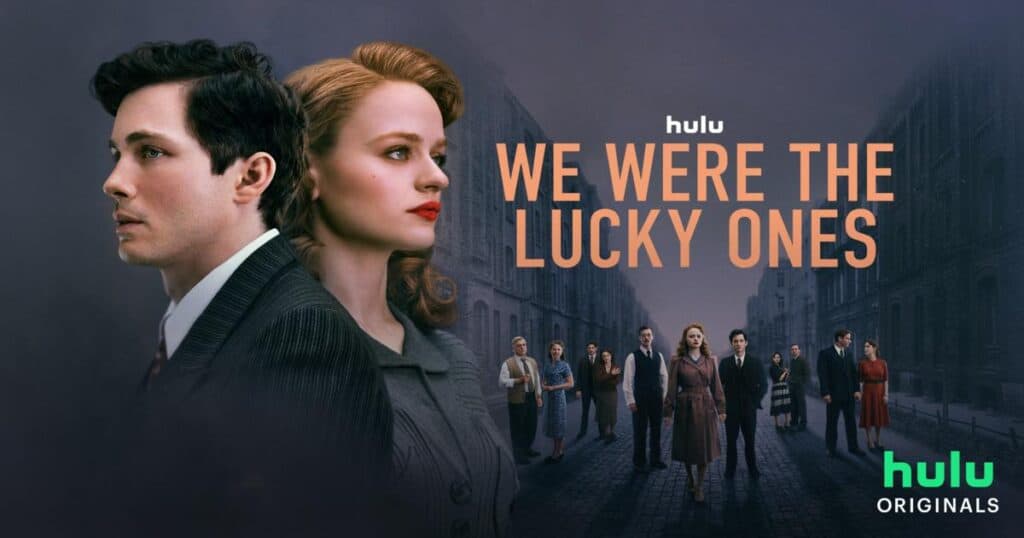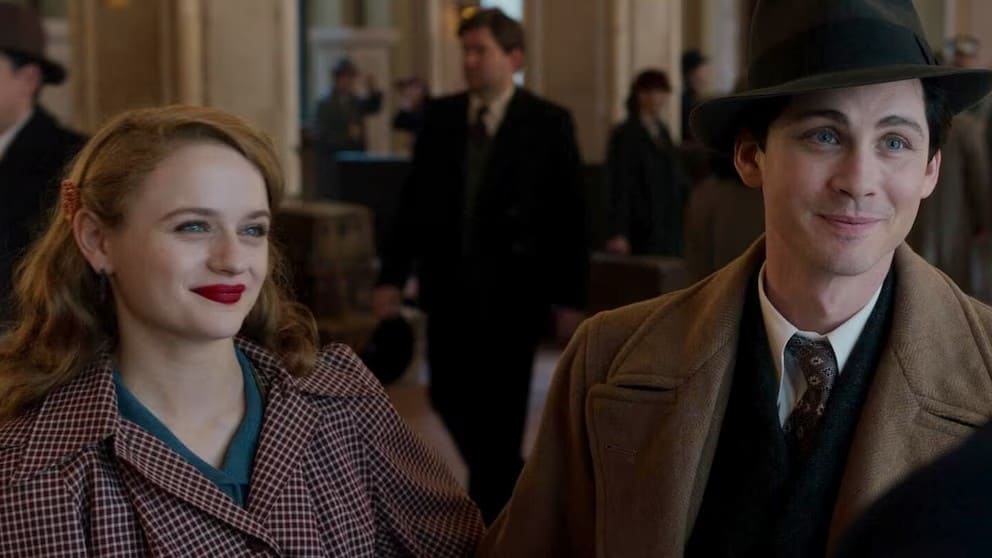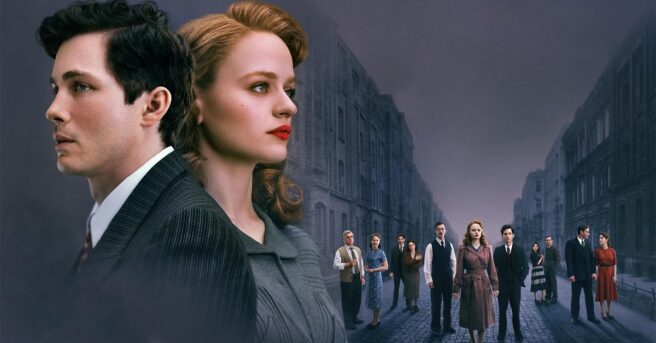

Plot: Based on Georgia Hunter’s New York Times bestselling novel, the television adaptation of “We Were the Lucky Ones” is a limited series inspired by the incredible true story of one Jewish family separated at the start of WWII. The series follows them across continents as they do everything in their power to survive and to reunite. “We Were the Lucky Ones” demonstrates how, in the face of the twentieth century’s darkest moment, the human spirit can endure and even thrive. The series is a tribute to the triumph of hope and love against all odds.
Review: One of the most important lessons of history is never to forget it. In recent years, as political strife has shifted around the globe from one region to the next, entertainment has always been an outlet to tell stories of inspiration as well as the stark horrors of what happens when the world looks the other way. With 2025 serving as the 80th anniversary of the end of World War II, we continue to see films and series telling the tales of the various perspectives of those who lived through the tumultuous era. 2023 saw the Oscar-winning The Zone of Interest on the big screen and the overly melodramatic Netflix series All The Light We Cannot See. 2024 opened with the epic war series Masters of the Air, and now Hulu follows with a very different type of epic in We Were The Lucky Ones. Chronicling the path of one Jewish family across the globe during the span of World War II, the limited series is a well-constructed dramatic adaptation of the fictionalized true story of the Kurc clan through some of the most horrific events of the twentieth century.
Spanning the weeks in 1939 before the start of World War II through 1947, We Were The Lucky Ones opens with the return of Addy Kurc (Logan Lerman) from Paris, where he worked as a composer and musician. Excited to be reunited with his sister Haline (Joey King) and his family for Passover, Addy and his siblings celebrate the annual Jewish holiday despite concerns about the growing threat of German invasion. Parents Sol (Lior Ashkenazi) and Nechuma (Robin Weigert) share joy with their children, including sons Genec (Henry Lloyd-Hughes), Jakub (Amit Rahav), and daughter Mila (Hadas Yaron). After Addy returns to Paris, the Kurc family witnesses the invasion of their home city, Radom, and are forced to begin the shocking life of Jews during the Nazi regime. While this series does share some brutal moments, it shies away from turning into a tale of concentration camp survival. Instead, it looks at the various paths that the Kurc family take during their eight-year journey to be reunited.
Each of the eight series episodes is titled after a significant location the Kurcs find themselves seeking refuge, including Radom, Lvov, Siberia, Casablanca, Ilha Das Flores, Warsaw, Monte Cassino, and Rio. Much of the series is led by Joey King and Logan Lerman, each with a distinct story divided by geography. Joey King’s Halina spends the majority of the series close to her parents and siblings, who endure a lot in the eye of the storm of the Nazi occupation. Hiding their identities at times and relegated to ghettos at others, King triumphantly plays Halina as an optimist who endures to save her family by any means. This includes an unforgettable sequence towards the end of the series that is truly hard to watch and also some of the best acting that King has delivered in her young career. Halina grows quite a bit over the course of the series alongside her partner, Adam Eichenwald (Sam Woolf). Much of this series is focused on the couples in the Kurc family and how their relationships endure even in the face of the most horrific actions taken against humanity. Some of these scenes are tragic but still maintain a hopeful theme.

Logan Lerman, who faced a very different Nazi threat in Prime Video’s Hunters, spends the majority of the series on his own. At the start of the series, Addy tries to return to his family in vain before heading in the opposite direction, eventually making his way to Brazil. At times, the split focus between the European atrocities the bulk of the Kurc clan face and the vastly different experiences Addy endures makes We Were the Lucky Ones feel uneven in pacing and tone. The recurring theme of Passover celebrations under the specter of the Holocaust adds a recurring motif that strengthens the family bond, something accentuated by the steadfast performances of Robin Weigert and Lior Ashkenazi as the patriarch and matriarch of the family. At times, the series borders on melodramatic and stokes cliches of the genre, but always in service of telling this amazing story. Part of what makes it amazing is how so many of the Kurc family are reunited during an era where countless Jewish families were annihilated, but that helps the spirit of We Were The Lucky Ones live up to its title.
Showrunner Erica Lipez wrote three of the series’ eight episodes, with Adam Milch, Anya Meksin, Jonathan Caren, Eboni Booth, and Tea Ho scripting the rest. Adapted from Georgia Hunter’s bestselling novel, We Were The Lucky Ones has taken a lot of dramatic liberties in developing a story that could have felt like a reenactment of someone’s Ancestry.com family tree. Many moments through the series feel familiar and pulled from other similar series about survivors of World War II, but they never feel repetitive. Directing duties fell to Thomas Kail on two episodes, Amit Gupta on three, and Neasa Hardiman on the remaining three chapters. Kail, an acclaimed theatre director, is best known for directing the filmed version of Hamilton, while Gupta and Hardiman are veteran television directors. As filmmakers, all of the helmers keep the quality of each chapter cinematic and stirring without pandering to the more emotional elements of the story.
Not as stark as Schindler’s List but every bit as effective, We Were The Lucky Ones is a love letter to survivors of an atrocity that the world should never forget. Those familiar with the celebration of Passover will find the customs and recurring family seders beautifully realized. This story is hard for many to watch, but between the horrors, there is life, beauty, love, and celebration. Certainly, it’s not a series for a light watch, but it’s much better than it could have been. Like any true story that is dramatically retold, We Were The Lucky Ones hinges on the quality of the cast and the story’s honesty about the real events. This effective human drama will have you crying and smiling in equal measure at the strength of family and love.
We Were The Lucky Ones premieres on March 28th on Hulu.
The post We Were The Lucky Ones TV Review appeared first on JoBlo.

Leave a Reply